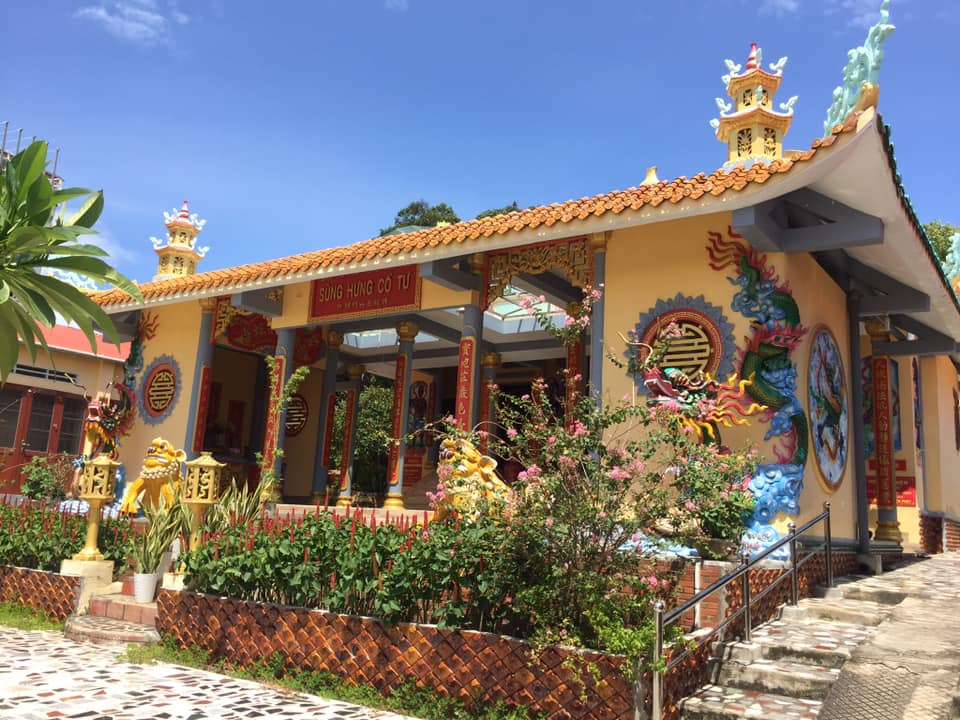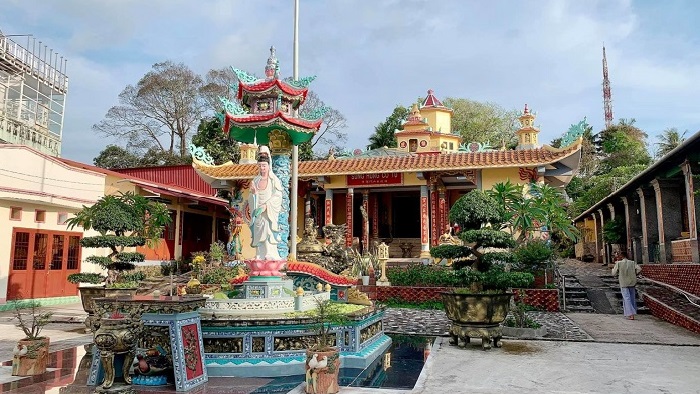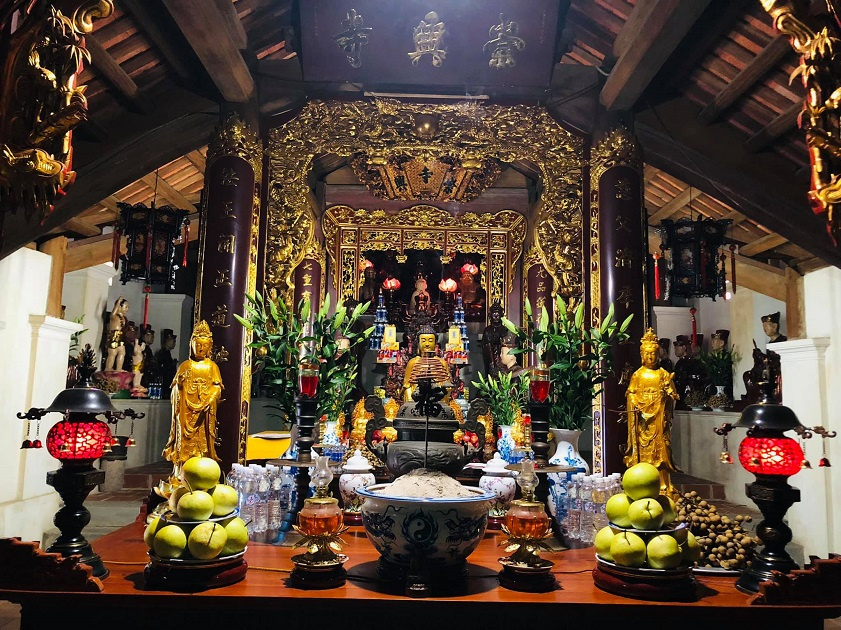Sung Hung Pagoda
1. Overview
Sung Hung Pagoda is considered the oldest Buddhist temple on Phu Quoc Island, located in the heart of Duong Dong Town. Though small in size, it holds great religious significance for the local community and is a peaceful stop for travelers seeking cultural and spiritual experiences. The temple blends traditional Vietnamese architecture with serene natural surroundings, making it a symbol of enduring faith on the island.
2. Historical and Cultural Significance
The exact founding date of Sung Hung Pagoda is unknown, but it is believed to have been established in the early 20th century, possibly even earlier. It was originally two separate shrines that were later merged into one unified temple.
Sung Hung Pagoda serves as a spiritual hub for local Buddhists. Over the decades, it has witnessed the transformation of Phu Quoc from a remote island to a bustling tourist destination, yet the temple has retained its tranquil atmosphere and deep spiritual roots. The pagoda is particularly busy during Buddhist holidays, when locals gather for prayers, offerings, and community rituals.
3. Architecture and Design
Sung Hung Pagoda features a modest yet graceful design, typical of southern Vietnamese pagodas. Key architectural and spiritual elements include:
-
Triple Gate (Tam Quan): A traditional arched entrance that leads visitors into the sacred grounds.
-
Main Worship Hall: Houses the statue of Amitabha Buddha (Phật A Di Đà), flanked by statues of Bodhisattvas such as Avalokiteshvara (Quan Âm) and Mahasthamaprapta (Đại Thế Chí).
-
Interior Murals and Incense Altars: The walls are adorned with Buddhist paintings, while several incense altars are placed around the temple for offerings.
-
Bodhi Trees and Garden Space: Although located in an urban area, the temple’s small garden and Bodhi trees create a peaceful, green atmosphere.
Despite its size, the layout of Sung Hung Pagoda reflects balance, serenity, and a sense of sacredness that invites quiet contemplation.
4. How to Get There
Sung Hung Pagoda is conveniently located on Tran Hung Dao Street, right in the center of Duong Dong Town, Phu Quoc’s main urban area.
-
You can easily walk to the pagoda if you're staying nearby.
-
It is also accessible by motorbike, car, or taxi.
-
The pagoda is often included in short city tours or walking itineraries around Duong Dong.
Its central location makes it one of the most accessible religious landmarks on the island.
5. Festivals and Activities
While Sung Hung Pagoda is not known for large-scale festivals, it is an active site during major Buddhist events, including:
-
Vesak (Buddha’s Birthday): Held on the 15th day of the 4th lunar month, celebrated with prayers, flower offerings, and chanting.
-
Vu Lan Festival (Ghost Festival): On the 15th day of the 7th lunar month, locals come to honor their ancestors and express filial piety.
-
Lunar New Year (Tết): People visit the pagoda to offer incense and pray for health, peace, and prosperity for the new year.
In addition to these holidays, the temple is visited daily by locals who come for personal prayer, reflection, or to make merit.
6. Tips for Visitors
-
Dress respectfully: Wear clothing that covers your shoulders and knees.
-
Be quiet and respectful: Avoid loud conversations or inappropriate behavior.
-
No entry fee, but donations for maintenance are welcome.
-
Photography is allowed, but avoid using flash and do not photograph during prayer services.
-
Visit early in the day to enjoy a calm, quiet atmosphere before it gets too hot.
7. Conclusion
Sung Hung Pagoda may not be the grandest or most architecturally complex temple on Phu Quoc, but it stands as a timeless place of peace and devotion. Its central location, welcoming atmosphere, and spiritual charm make it a meaningful stop for anyone interested in local culture or in need of a tranquil escape. As the oldest pagoda on the island, Sung Hung is a cultural and spiritual landmark that continues to quietly shape the lives of locals and offer a serene experience to all who visit.




